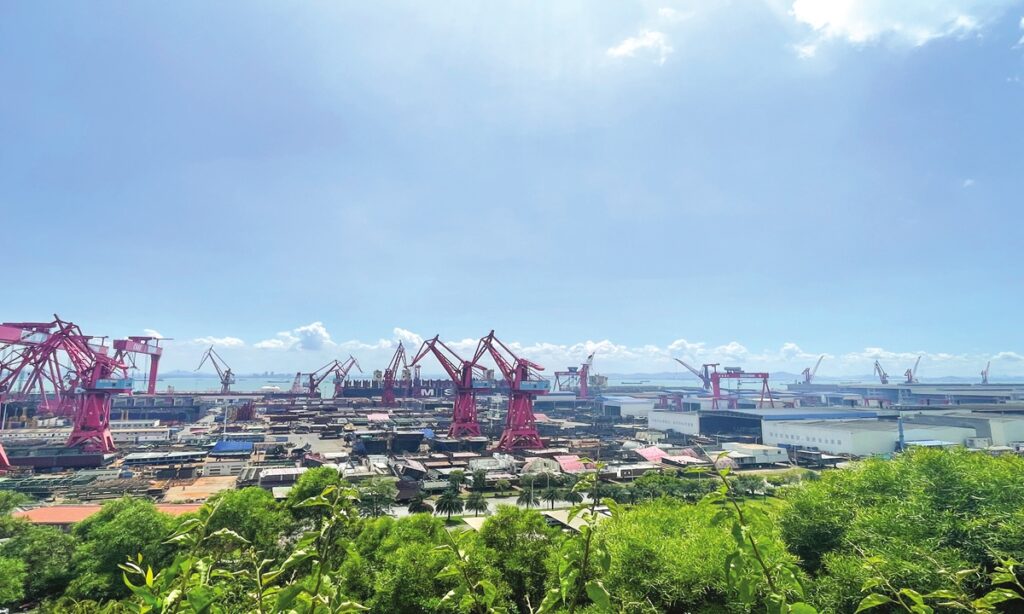South China’s Guangdong Province on Thursday released 20 measures to optimize its business environment and stabilize the scale of trade, joining a growing number of other Chinese localities in taking steps to stabilize trade amid downward pressure.
Guangdong’s measures focus on improving customs clearance efficiency, easing burdens on enterprises, servicing the innovative development of Guangdong’s foreign trade and other factors, further offering policy support for enterprises and boosting their confidence.
Measures include enlarging the coverage of logistics integration to improve customs clearance efficiency and shortening the quarantine and approval process of special scientific research items.
Aiming to serve innovative foreign trade, measures targeting cross-customs returns for cross-border e-commerce retail transactions will be implemented, while the expansion of the exports of new-energy vehicles and energy storage products will be supported.
Guangdong has taken the lead in China for more than three decades in terms of the scale of foreign trade, which accounts for 20 percent of the national total. In the first seven months of 2023, Guangdong’s foreign trade stood at 4.55 trillion yuan ($631.16 billion), down 1.1 percent year-on-year, according to official data. Notably, its exports increased 3.1 percent to 3 trillion yuan.
In addition to the 20 measures announced on Thursday, various local governments in Guangdong have also taken steps to boost trade.
The Shenzhen Special Economic Zone released 20 measures to improve the business environment, which included a series of measures to promote the smart construction of local customs to accelerate customs clearance efficiency. Local media reported that the time to enter customs dropped 75.93 percent to 6.26 hours.
Shenzhen customs has released more than 95 measures over the past four years to promote convenience in cross-border trade, according to media reports.
Apart from Guangdong, other Chinese provinces and regions have taken similar steps to boost local trade. In Central China’s Hubei Province, a program to reduce foreign trade costs was released on August 3.
The program aims to cut customs clearance costs by 10 percent while aiming to achieve the lowest costs in Central China by 2024.
The program will promote the construction of a smart port and achieve the goal of handling foreign trade enterprises’ cross-border trade at a “single window,” with a goal to further shorten the clearance time.
(Global Times)




